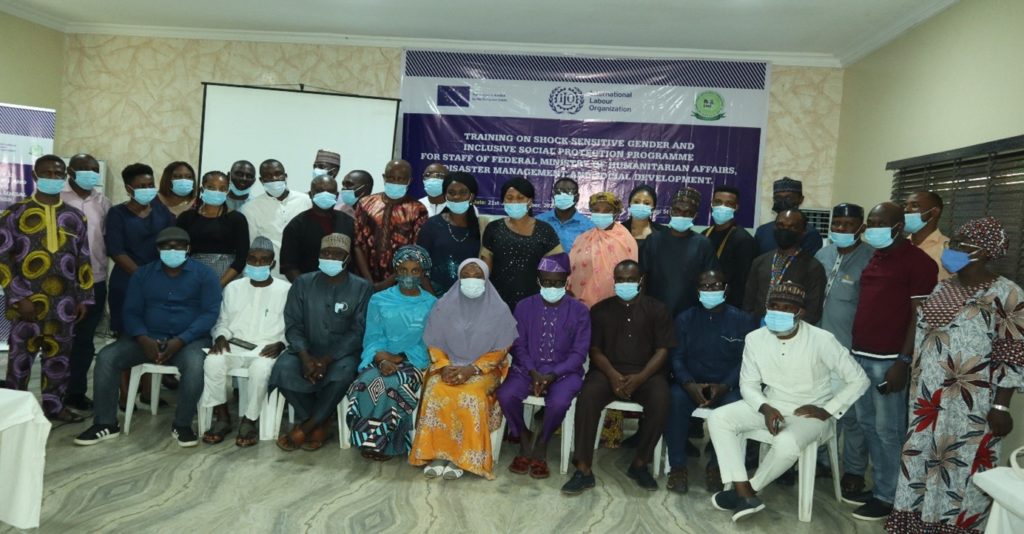
The SP&PFM Programme in Nigeria provided on 21-22 October 2021 a training activity on shock-sensitive, gender and disability-inclusive social protection programs. The course was attended by 35 officials from the National Social Safety Nets Coordinating Office (NASSCO), the National Social Investment Programme Office and the Federal Ministry of Humanitarian Affairs, Disaster Management and Social Development.
In the opening remarks, the National Coordinator of NASSCO, represented by Abdullahi Lawal, Head of Monitoring and Evaluation, reiterated the importance of this training activity for the ministry. He emphasised that the collaboration with the ILO on the SP&PFM Programme, funded by the European Union, became evident because of the impact of COVID 19. The facilitator provided shared understanding to the participants on the concept of Gender, Social Inclusion & Gender-Based Violence, Overview of Social Protection & Shock-Responsive Social Protection, Mainstreaming Gender and Vulnerable Groups into Social Safety Nets Programmes, Operationalising Gender and Social Inclusion in Social Protection, Monitoring Shock Sensitive Gender and Socially Inclusive Programmes. The deliberations were on programme development and implementation that ensures the most vulnerable population are included in social protection programmes.
The social policy expert noted that gender-sensitive social protection describes gender-based social risks and vulnerabilities; this includes exclusion, discrimination, violation of rights, the potential measures to address and promote gender equality. At the same time, the shock responsive programme on social protection emphasises social protection frameworks, social risk management frameworks, and social protection floors. The ILO National Project Officer reiterated the ILO Recommendation N°. 202, which provides guidance in building comprehensive social security systems and extending social security coverage by prioritising the establishment of national floors of social protection accessible to all in need.
The training concluded by highlighting the challenges for shock-responsive social protection, which cut across many individuals falling in need of social protection benefits simultaneously, some individuals requiring additional support, the capacity of the system to deliver relief not elastic as may be necessary. The final considerations also highlighted the relevance of the NASCCO designing a strategy for shock responsive social protection programme and liaising with ILO for support in its implementation.
